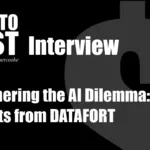The Impact of AI on Global Democracy
AI is revolutionizing various industries and reshaping democracy worldwide. Its influence on political campaigns raises concerns about election fairness and public opinion manipulation. From deceptive tactics to AI-generated content in virtual rallies, AI’s impact on global democracy is undeniable.
AI in the United States
AI is used to influence voters in the US, casting doubt on election fairness. This phenomenon is not limited to the US alone; South Asia has also seen the significant role of AI in shaping democracy.
AI in Bangladesh
In Bangladesh, where restrictions on public gatherings require innovative approaches, AI takes center stage. Pro-government news outlets promote deepfakes and AI-generated media to manipulate public opinion. The boundaries between reality and fabrication are becoming blurred, raising concerns about democratic integrity.
AI in Pakistan
Former Prime Minister Imran Khan of Pakistan conducted a nearly five-hour virtual rally while incarcerated. His political party trained an AI program to mimic his speech patterns, enabling him to connect with supporters. This demonstrated the potential of AI in political campaigns, transcending traditional boundaries.
AI in India
In India, AI takes a different form. Prime Minister Narendra Modi’s AI-cloned voice is used to sing songs in regional languages he doesn’t speak. This AI-generated content expands the reach and impact of political leaders, blurring the lines between authenticity and manipulation.
Challenges and Concerns
The rise of AI in global democracy raises critical questions for policymakers and strategists. Deepfakes, AI-generated content, and bots as carriers of political propaganda are concerning. With an estimated two billion people set to vote in 2024, effective AI-based misinformation detection tools are crucial.
The Challenge of Combating AI-generated Misinformation
However, combating AI-generated misinformation presents challenges. Digital information literacy is valuable but limited when countering AI-based disinformation. The sophistication of AI algorithms and their ability to create convincing fake content pose a substantial threat to democratic integrity.
The Urgent Need for Countermeasures
The recent election in Bangladesh serves as a reminder of how AI can be used for disinformation. An AI-generated video showed the exiled opposition leader making potentially disastrous statements. Robust mechanisms to detect and counter AI-generated disinformation in real-time are urgently needed.
The Vulnerability of Modern Democracies
Even in the US, AI has infiltrated the electoral landscape. An AI voice clone of President Biden was used in a robocall in New Hampshire to discourage voting. Addressing the vulnerabilities of modern democracies to AI manipulation is urgent.
Collaboration for Effective Solutions
As AI’s role in global democracy expands, policymakers and technology experts must collaborate to develop effective solutions. Reliable AI-based misinformation detection tools are crucial to safeguarding election integrity and preserving citizens’ trust.
Conclusion
The rise of AI-generated content in the democratic process brings a new era of political influence. From attempts to sway voters to public opinion manipulation, AI’s impact is felt worldwide. Policymakers must remain vigilant and proactive in addressing the challenges posed by AI-generated misinformation. Collaborative efforts are essential to ensure democracy remains resilient in this ever-evolving technological landscape.










